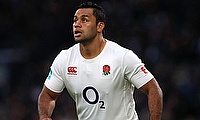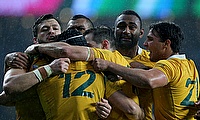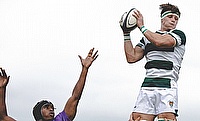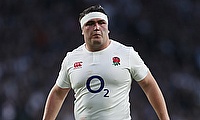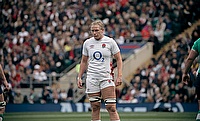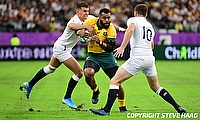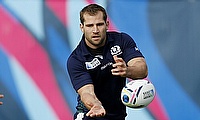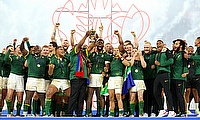Bryan Habana on global calendar – ‘You are not going to make everyone happy’
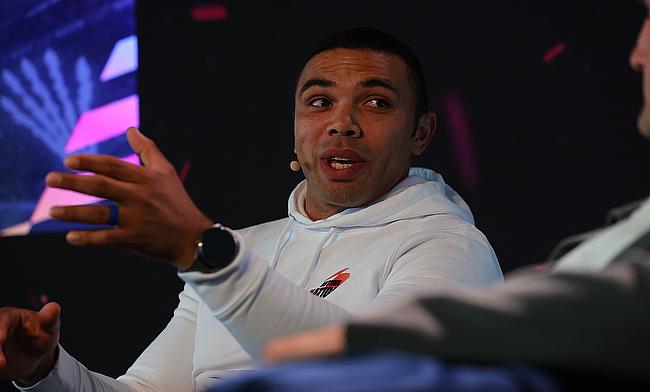
Bryan Habana won a Rugby World Cup with South Africa in 2007
©Autumn Nations Series
With the prospect of a global calendar being introduced by World Rugby in the coming years, former Springbok wing Bryan Habana believes that when it is introduced, it is “not going to make everyone happy”.
Already the tides of change have been lapping at the game’s shore, with the introduction of the United Rugby Championship [URC] and with South African provinces due to compete in the Champions and Challenge Cup this season, it is clear that the game is changing.
Last week, Six Nations Rugby CEO Ben Morel discussed the prospect of a global calendar, saying “we [key stakeholders in the game] are still realistically several months away from knowing everything that needs to be solved” as a result of the complexity of the world game.
“Rugby’s on a very different course to when I started my career back in 2003,” Habana said. “People are looking for opening up new territories, new fans and these different things.
“For any growth, you unfortunately have to become uncomfortable, and you are going to have to do things that don’t always please everyone and you are never going to get a situation where you please everyone.”
Established just over a year ago, the URC has changed the timetable of rugby in South Africa, the Currie Cup sacrificed in favour of playing on the northern hemisphere’s calendar. Immediately the move has proven its worth as the Stormer and Blue Bulls made the URC’s inaugural final, the former finishing as winners.
Playing northern hemisphere teams seemingly makes plenty of sense. With just an hour’s time difference between the United Kingdom and South Africa, the times marry up well for television broadcasts, whereas in Super Rugby following a province when they were on the road in New Zealand or Australia was a more significant challenge.
When it was announced that South African teams would be competing in the Heineken Champions Cup and Challenge Cup, it drew plenty of criticism. A fundamental change to a competition that was born as a contest between Europe’s elite, the prospect of change is often a difficult one to come to terms with but is another sign of the game moving towards a more streamlined entity with commercial interests at its heart.
“Rugby’s the only sport, in my opinion, that is not a global sport purely because of the fact that it’s a winter sport and winters in the northern and southern hemisphere are different,” Habana said.
“The current seasons are based on when to start it and soccer has gone to this global season, it is not really a winter sport, it is played in all conditions. Rugby for anything to happen, powers need to make a decision.
“If it is to become a global season, everyone needs to start at some point. For us to start at a given time, either the northern hemisphere or southern hemisphere teams need to budge. There is no simple solution for me.
“Everyone is trying to look at player welfare, how many games you play in a season, but if you are always starting at different times, unfortunately because rugby has always been a winter sport and I don’t think that is ever going to change.
“Who is going to make the first move in a global calendar? I don’t know. I’m definitely not one of the smart ones from an administrative role within World Rugby. Even in those decisions, you are not going to make everyone happy.”
The Rugby World Cup winner is of course correct. Any widespread changes to the global game would result in sacrifice for all nations involved, Habana quite rightly stating that if the European season was to be played over the summer, what would attendances look like with that time of year usually reserved for holidays abroad during the school holidays.
When it comes to further changes to international rugby and South Africa are the topic of conversation once more. For some time, the Springboks have been touted as a side that could possibly join the Six Nations in some manner, Rassie Erasmus just one to support the potential for a change to the competition.
Still competing in the Rugby Championship for a number of years to come, when South Africa could even join the Six Nations is somewhat unknown, but with the cross pollination of the URC conforming with the European season, and the URC and Six Nations both having had significant investment from CVC Capital Partners, the three-time World Cup winners joining the competition seems far from being out of the question.
But just as a global calendar seems to make sense on paper, in the eyes of Habana there are plenty more unanswered questions.
“There is a lot of things that need to be done before that,” Habana said. “So, does the competition get expanded? That’s a debate. If it doesn’t get expanded, who gets kicked out? And, why South Africa instead of a Japan or a Georgia or one of the European or Northern Hemisphere-based teams?
“It makes more sense if South Africa was to be playing in an expanded Six Nations competition, given that we are now playing a UK calendar and it is very difficult to have your players literally being at their best for 12 months of the year, trying to work in appropriate rest periods for that. It’s just not possible.
“Given South African club rugby teams are now plying their trade in Europe, from a URC and Champions Cup perspective, teams playing up north, it does make sense because when that competition ends at the end of May or the beginning of June, you have a two month window before you play in the Rugby Championship.
“I think given that our club teams are playing in Europe, it makes more sense. But unfortunately, it can’t happen given the fact that internationally it is not viable at the moment.”
Bryan Habana will feature on Autumn Nations Series matches exclusive on Prime Video.


